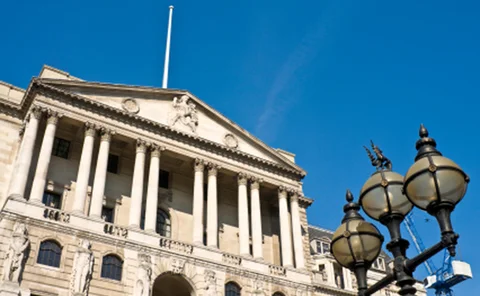Economics
RBA’s Kent considers life after the mining boom
Australian economy is well into an adjustment, following the country’s mining investment boom; RBA correctly identified the patterns of adjustment, but was surprised by the magnitude
Chinese financial spillovers to Asia-Pacific on the rise – BIS paper
Working paper finds Chinese equity markets now have almost as much of an impact on Asia-Pacific as the US, though the effects differ in stressed and placid times
Book notes: And the weak suffer what they must?, by Yanis Varoufakis
A book that is likely to elicit strong opinions – but Varoufakis writes persuasively, and may well win over many of his readers, says David Mayes
Falling natural rates impacted by common global factors – Fed paper
Research by Kathryn Holston, Thomas Laubach and John Williams finds no sign of natural rate decline reversing; advanced economies jointly affected by global factors
Bank of Finland looking to streamline and upgrade payments simulator
Economist sheds light on the bank’s plans for adding new features, improving efficiency and integrating agent-based modelling
HKMA researchers dig into persistent covered interest parity deviation
Authors posit forex swap dealers filter out counterparty risk from money market rates when setting swap prices; risk adjustment continues even in non-stressed periods
University of Buckingham to launch first central banking master’s degree
Monetary economics to form core of the year-long course; university hopes programme will enrol around 12-15 students in the first year
Major economies show clear credit price cycles, researchers say
Housing markets are a key influence on credit prices cycles in the US and major European economies, an ECB paper argues
Countries’ capital flows differ substantially since financial crisis – ECB paper
Macro-prudential policies could be a long-term impediment to capital flows, according to the authors of an ECB paper
Jackson Hole: economists flag costs and benefits of bloated balance sheets
Economists including Christopher Sims, Ricardo Reis and Jeremy Stein unpack the economics of central bank balance sheets, identifying both dangers and potential benefits
Book notes: The power of a single number, by Philipp Lepenies
Lepenies offers a brief but very readable treatment of GDP's political history, drawing out some important lessons in the process
Mervyn King on Brexit, crisis supervision, economic rebalancing and reforming the IMF
The former Bank of England governor discusses Brexit, radical regulatory reform, the difficulties rebalancing the European and global economies and an overhaul of the International Monetary Fund
Canadian working paper examines effect of downward nominal wage rigidity on wage growth
Average wage growth higher due to DNWR after recession, authors note; signs of heterogeneity in DNWR effects
Economists add to theory and empirics of economy’s non-linear dynamics
Paper by Bank of England economists finds “strong evidence” of non-linearity in UK data, while Markus Brunnermeier and Yuliy Sannikov expand theory of financial amplification mechanisms
Book notes: The euro and the battle of ideas, by Markus K Brunnermeier, Harold James and Jean-Pierre Landau
The authors have produced a fascinating and informative book that offers suggestions on how differences in beliefs can be overcome
More work needed to make case for GDP-linked bonds – BoE paper
The design of GDP-linked bonds needs to align macroeconomic need with investor demand, according to a paper authored for the G20 summit; clearer guidelines and principles could aid adoption
US inflation target within ‘hailing distance’, says Fischer
The Fed is “close” to its targets says vice-chair; despite recent weak GDP figures, Fischer expects investment to recover in coming months
Fiscal stimulus works even in debt-driven recessions – Cleveland Fed paper
Study uses defence spending to estimate fiscal multiplier, finding it is higher in areas with larger debt burdens, contrary to the fears of some economists
RBNZ better at forecasting growth and inflation than exchange rate, notes study
Economists compare judgement-based forecasts with benchmark set by suite of statistical models, finding judgement tends to work well, but both types of forecast struggle with exchange rates
Bullard backs new approach to forecasting
Idea of economy converging to a single steady state has “likely outlived its usefulness”, St Louis Fed president says; instead reserve bank will now focus on regime-based forecasts
UK inflation climbs in first post-Brexit data
Prices rose 0.6% in the year to July, the highest inflation number for nearly two years, with signs the effect of the UK’s Brexit vote may be starting to feed through
BoE paper finds fault with empirical methods for studying contagion
Review of spillover and contagion literature finds methods plagued by bias and heteroskedasticity, concluding no single technique is flawless, but some offer a partial solution
Okun’s law is empirically robust but presents modelling problems, researchers say
Economists need to find more sophisticated methods to model the relationship between financial and labour markets, say the authors of an occasional paper published by the ECB
Credit contractions are significant cause of unemployment, researcher says
Data from 20 OECD countries shows that contractions in credit affect total, youth and long-term unemployment measures, a working paper from the Bank of Austria argues






















